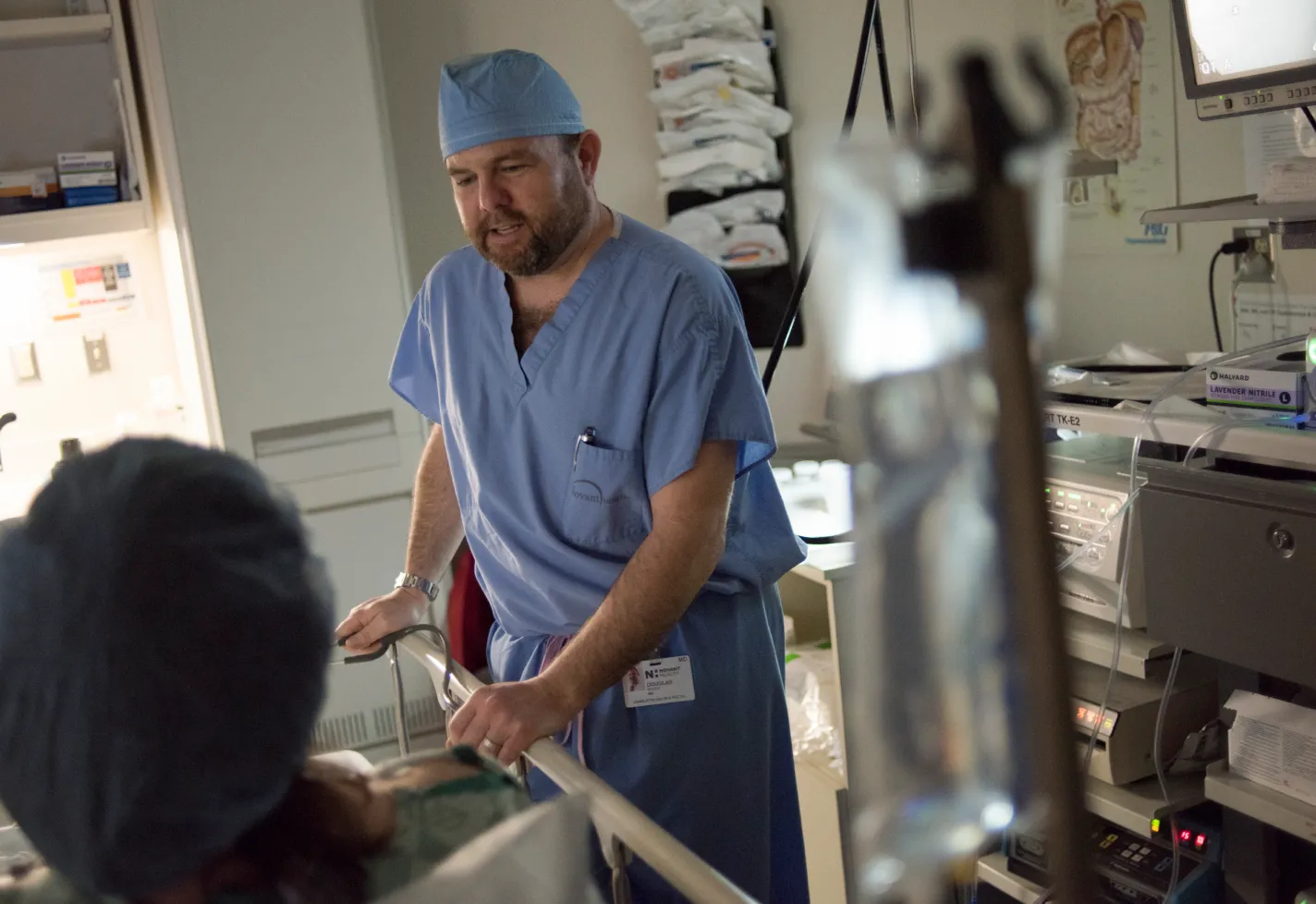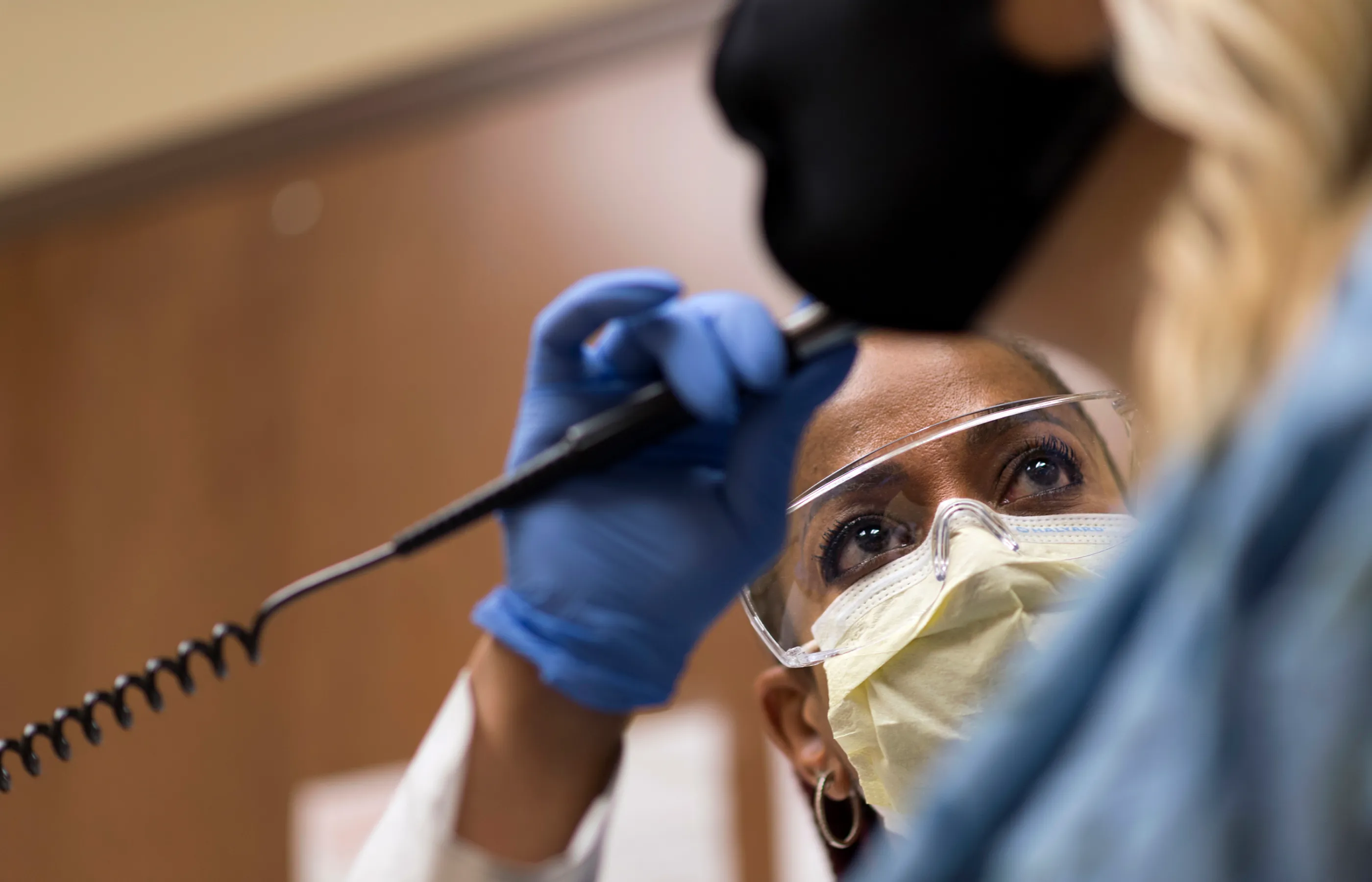Ear, Nose & Throat (ENT) Surgery
Access regional experts in minimally invasive procedures.
Sleep apnea, chronic sinusitis and other conditions affecting the ears, nose and throat can prevent you from doing the things you love. When left untreated, they also can lead to other health conditions. Our otolaryngology surgeons can provide exceptional long-term treatment for these disorders and others involving the ears, nose or throat.

Ear, nose and throat conditions
Because the ear, nose and throat (ENT) specialty covers several body systems, the ENT surgeons at Novant Health treat a broad spectrum of conditions. Our ear, nose and throat surgeons are located across much of the state, providing you with easy access to expert care.
Common conditions we treat with surgical procedures include:
- Balance issues
- Chronic sinusitis
- Hearing difficulties
- Sinus blockages
- Sleep apnea
- Thyroid conditions
- Vocal problems
Do I need ENT surgery?
Together, you and your ENT specialist can determine if surgery is the best treatment for your specific condition. You’ll discuss your current medical health and family history. If surgery is recommended, you may be a candidate for minimally invasive surgical techniques, used by our ENT surgeons whenever possible to reduce pain and speed up recovery.
Surgical procedures performed include:
- Balloon sinuplasty
- Deviated septum repair
- Head and neck cancer removal
- Ear tube placement
- Eardrum repair
- Tonsillectomy
Who performs ENT surgeries?
ENT surgeons, also called otolaryngologists, are highly specialized medical experts who have studied medicine and surgery before completing additional training in the interconnected systems of the head and neck. Our board-certified surgeons are experienced at treating a wide variety of ENT conditions.

Access advanced surgical treatment for common conditions
Sleep apnea treatment
Sleep apnea is when your breathing stops temporarily while you’re asleep due to blockage of your airway. Often associated with snoring, sleep apnea can increase your risk of stroke, high blood pressure or heart failure. It can also leave you drowsy during the day and less alert for important activities. If your sleep apnea isn’t getting better through nonsurgical techniques, such as a CPAP machine, Remedē or Inspire implantable device, or other breathing device, your provider may recommend surgery.
Your surgeon may remove small amounts of tissue at the base of your tongue through a process called ablation. Over time, the tissues in that area shrink, allowing more space for airflow. This technique may be combined with other treatments, such as a tonsillectomy, to further reduce the obstructing tissue.
Explore Sleep Apnea Treatments
Chronic sinusitis treatment
Your sinuses produce and drain mucus to keep bacteria out of your nose. When they get blocked or fill up with fluid, you can develop a number of symptoms, including facial pain, pressure, congestion or ongoing headaches.
If your chronic sinusitis is structural, like a deviated septum or polyps, your care team may recommend surgery. Whenever possible, our surgeons use advanced laparoscopic tools and other minimally invasive techniques for quicker recovery and less discomfort.
Minimally invasive sinus surgery
If you suffer from chronic sinusitis, our ENT surgeons can help with specialized sinus endoscopy, using a revolutionary image-guided surgical system for extreme precision in delicate areas. You may be a candidate for balloon sinuplasty, which uses a small, flexible balloon catheter to gently restructure your blocked nasal passage. Because the procedure preserves the sinus lining in restoring sinus drainage and function, many patients can return to normal activities within 24 hours.

Safer, Faster Recovery With ERAS
Our surgeons adhere to the Enhanced Recovery After Surgery (ERAS) care pathway.
This means your entire care team follows scientific-based methods before, during and after surgery designed to reduce your pain, reduce your recovery time and enable you to go home faster.
